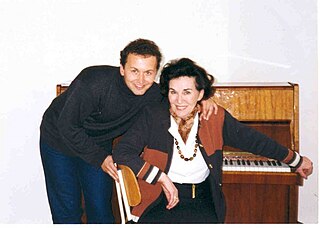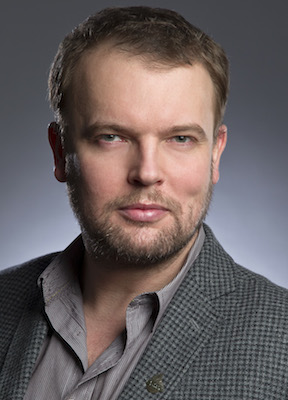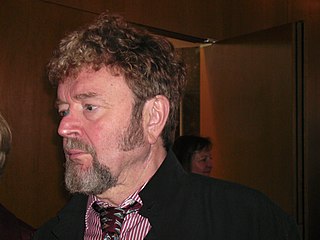
Roy Galbraith Henderson CBE was a British baritone singer, conductor and teacher.
Lawrence Winters(néLawrence Lafayette Whisonant; 15 November 1915 King's Creek, South Carolina – 24 September 1965 Hamburg, Germany), bass-baritone, was an American opera singer who had an active international career from the mid-1940s through the mid-1960s. He was part of the first generation of black opera singers to achieve wide success and is viewed as part of an instrumental group of performers who helped break down the barriers of racial prejudice in the opera world. He began his opera career at the New York City Opera in 1946 during a time when the NYCO was one of the few American opera companies hiring black artists. He sang a varied repertoire there through 1955, after which his career was largely based in Europe until his death at the age of fifty.

Louis Quilico, was a Canadian opera singer. One of the leading dramatic baritones of his day, he was an ideal interpreter of the great Italian and French composers, especially Giuseppe Verdi. He was often referred to as "Mr Rigoletto" in reference to the Verdi opera. During his 45-year-long career he shared performing credits with opera's greatest stars. He spent 25 consecutive years at the Metropolitan Opera in New York City. After his retirement from the stage in 1998 he continued to perform and record, most often with his second wife, pianist Christina Petrowska Quilico,, with whom he made four CDs. The couple also toured together extensively in concerts until Quilico's death in 2000. Quilico received the Governor General's Performing Arts Award, Canada's highest honour in the performing arts, in November 1999 for his lifetime contribution to classical music.
Thomas Jeffrey Hemsley, CBE was an English baritone.
Dennis Noble was a noted British baritone and teacher. He appeared in opera, oratorio, musical comedy and song, from the First World War through to the late 1950s. He was renowned for his enunciation and diction. He became the most prolific radio broadcaster of his time.
Robert Keith McFerrin Sr. was an American operatic baritone and the first African-American man to sing at the Metropolitan Opera in New York City. His voice was described by critic Albert Goldberg in the Los Angeles Times as "a baritone of beautiful quality, even in all registers, and with a top that partakes of something of a tenor's ringing brilliance." He was the father of Grammy Award-winning vocalist Robert McFerrin Jr., better known as Bobby McFerrin.

Koanga is an opera written between 1896 and 1897, with music by Frederick Delius and a libretto by Charles Francis Keary, inspired partly by the book The Grandissimes: A Story of Creole Life by George Washington Cable (1880). Inspiration also came from Delius's own experiences as a young man, when his family sent him to work in Florida. It was Delius's third opera, and he thought better of it than of its predecessors, Irmelin and The Magic Fountain, because of the incorporation of dance scenes and his treatment of the choruses. Koanga is reputed to be the first opera in the European tradition to base much of its melodic material on African-American music.
Sharon Sweet is an American dramatic soprano. Sharon Sweet has appeared in leading roles in several major venues in Europe and the United States and has made notable contributions to several recordings, in particular Lohengrin, Der Freischütz, Don Giovanni, and Il Trovatore. In 1999, she accepted a full-time teaching position at Westminster Choir College of Rider University. In a column in Opera News, Sweet stated that she made the move out of frustration with the current operatic scene which emphasized physical appearance over voice. She cited her struggles with Hashimoto's syndrome, a thyroid condition.

Radmila Bakočević, is a Serbian operatic soprano who had a major international opera career that began in 1955 and ended upon her retirement from the stage in 2004. During her career, she sang at most of the world's important opera houses, including performances throughout Europe, North and South America. She forged important long-term artistic partnerships with two opera houses during her career: the National Theatre in Belgrade and the Vienna State Opera.

Karl Gustaf Ingvar Wixell was a Swedish baritone who had an active international career in operas and concerts from 1955 to 2003. He mostly sang roles from the Italian repertory, and, according to The New York Times, "was best known for his steady-toned, riveting portrayals of the major baritone roles of Giuseppe Verdi — among them Rigoletto, Simon Boccanegra, Amonasro in Aida, and Germont in La traviata".

Tomasz Konieczny is a Polish bass-baritone.

Siegmund Nimsgern is a German bass-baritone, born in Sankt Wendel, Saarland, Germany.
William Dooley was an American bass-baritone singer who performed with many prominent opera companies. He began his career in Germany in the late 1950s, ultimately becoming a leading performer at the Deutsche Oper Berlin from 1962 to 1964. He then embarked on a highly successful career at the Metropolitan Opera where he sang regularly between 1964 and 1977. Between 1977 and 1982 he sang regularly at the Vienna State Opera, after which he remained active as a freelance artist on the international stage through the early 1990s.
Václav Zítek was a Czech opera singer. A lyric baritone with a beautiful timbre and a wide vocal range, he was one of the leading Czech singers of the postwar generation. He particularly excelled in portraying Janáček and Smetana heroes. His voice is preserved on numerous opera recordings made with the Supraphon record label.
Marina Krilovici is an opera soprano of Romanian birth.
Maurice Stern is an American operatic tenor and sculptor. He graduated from the Eastman School of Music. He made his debut at the New York City Opera as The Emperor Altuom in Giacomo Puccini's Turandot, and received a laudatory solo review by Eric Salzman of The New York Times for that small role.
Donald Munro Bell is a Canadian bass-baritone and vocal pedagogue. For over four decades he actively performed in concerts and operas internationally. He retired from performance in 1994. As a vocal pedagogue he has researched and published studies on vocal acoustics and laryngeal function. He is the founder of the Vocal Arts Acoustical Research Group at the University of Calgary, where he currently serves on the voice faculty.
John Harger Stewart is an American tenor, conductor, and voice teacher who had an active international singing career in concerts and operas from 1964 to 1990. He began his career singing regularly with the Santa Fe Opera from the mid-1960s through the early 1970s; after which he appeared only periodically in Santa Fe up through the mid-1980s. He was particularly active with the New York City Opera during the 1970s and 1980s, and with the Frankfurt Opera from the mid-1970s through 1990. He also appeared as a guest artist with several other important American opera companies, including the Metropolitan Opera and the Washington National Opera, and at other European opera houses like the De Nederlandse Opera in Amsterdam, the Deutsche Oper Berlin, the Grand Théâtre de Genève in Switzerland, and the Wexford Festival Opera in Ireland. Now retired from singing, he is currently the Director of Vocal Activities at Washington University in St. Louis where he also teaches singing and conducts student opera productions and choirs. He also serves as the opera conductor at the Johanna Meier Opera Theater Institute at Black Hills State University.
Victor von Halem was a German operatic bass. He was a member of the Deutsche Oper Berlin for nearly 30 years as well as a guest singer in the major opera houses and festivals of Europe and North America. He sang a wide repertoire encompassing over 100 roles, including King Philipp in Verdi's Don Carlo and Hans Sachs in Wagner's Die Meistersinger von Nürnberg.
Grace Hoffman was an American operatic mezzo-soprano and academic teacher. Based at the Staatsoper Stuttgart from 1955 to 1992, she performed roles such as Verdi's Azucena and Eboli at leading opera houses in Europe and the Americas. Her signature role was Wagner's Brangäne, performed at the Bayreuth Festival, among others.






